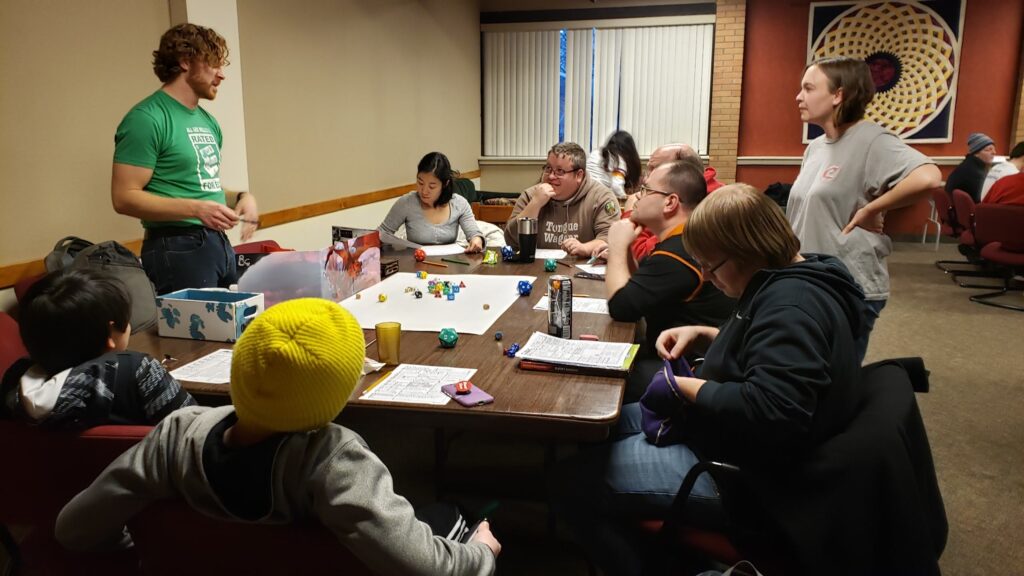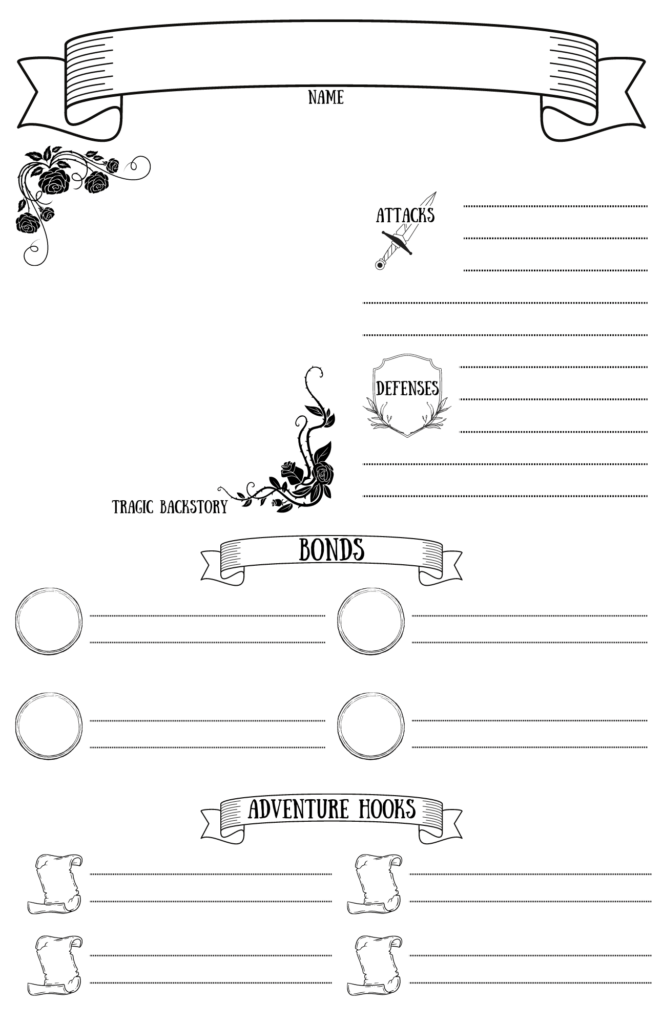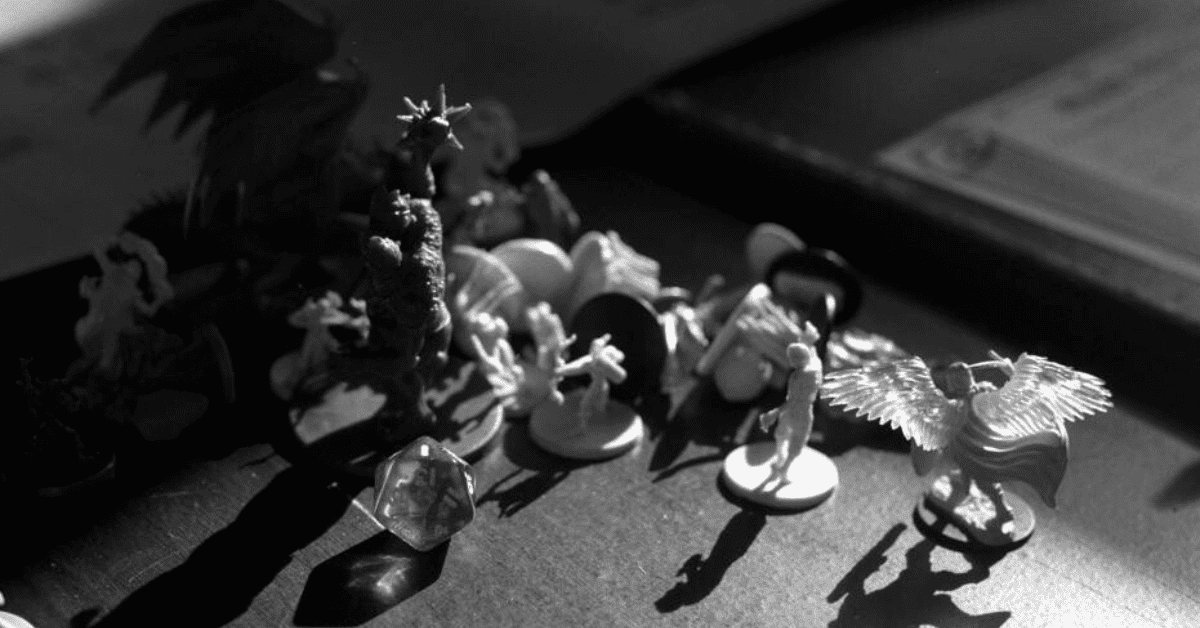I ’m Rory Philstrom, and I’m the Dungeon Master Pastor. Over the last eight years I have been using Dungeons & Dragons and other tabletop roleplaying games (Cypher System and 10 Candles are other favorites) as a medium for ministry. In a tabletop roleplaying game like D&D, players take on the role of a fictional character. This character is often one they have created themselves and is capable of doing amazing and fantastic things like fighting dragons or wielding magic or supernatural powers. Playing these games is like cooperatively creating an imaginative and original story, with the success or failure of particular actions being determined by rolls of many-sided dice. The Dungeon Master (or Game Master in non-D&D systems) plays the role of narrator and referee, adjudicating the results of those roles and providing interesting story hooks for players to follow.
Games like D&D have proved to be a potent ministry tool. I have used them for teaching young people about Bible stories and key Biblical personages by having them play as those people and encountering the drama of the Biblical story first-hand. Roleplaying is also valuable as a means for practicing virtues. It gives players a space to explore what it’s like to live more courageously into their core values. These games can be tools for identity exploration and empathy building, as players can inhabit characters and encounter others that are vastly different from themselves as they are today. Finally, tabletop roleplaying games serve as great vehicles for building relationships and community.
Our favorite homeless heroes
Interestingly, many players eschew creating relational bonds when they go to create their characters. Oftentimes in the character creation process, these games encourage players to create characters that are tied to the world by creating and naming friends and family outside the adventuring party. While creating these bonds is encouraged, many players choose to make their characters with tragic backstories instead. Orphaned and homeless heroes abound around D&D tables everywhere, characters who have lost everyone and everything they have ever loved or cared for.

There is of course a reason behind the well-trodden trope of the orphaned and homeless hero. Living bonds, family or friends that are happily going about their lives back at home, make tempting narrative bait for the Dungeon Master. All it takes to compel a character into a certain course of action is to threaten those that they care for. The enemy kills the spouse, the children are kidnapped by a rival, the best friend is locked up in prison—these are just a few of the story beats that happen in the recent movie Dungeons & Dragons: Honor Among Thieves, and are oft-repeated stories around the gaming table. But most players do not want to be compelled into action like that, so they remove all attachments or ongoing relationships from the story of their characters’ lives. This way they are in charge! They have control! They are invulnerable to the Dungeon Master’s tricks! They are free!
But what is lost when players cut their characters off from the richness and depth of living relationships? What is lost when we cut ourselves off from relationship because of our own past tragedies?
A case for vulnerability
Jesus is our example. 1 Peter 2:21 says, “For to this you have been called, because Christ also suffered for you, leaving you an example, so that you should follow in his steps.” He invites us to follow him in order so we might know the Way to flourishing life. His example is one of active love. Jesus shows us that to live a life of love is to not live on your own terms. Throughout the Gospels, Jesus allows his living relationships to impact him:
- He turns water into wine at his mother’s request, even though he doesn’t feel like his time has come yet. –John 2:4
- He cares for a large crowd, even when he wants to be alone. –Mark 5:34
- He goes to visit his dear friends Mary and Martha (and their recently dead brother Lazarus), even though it’s in an area full of enemies who want to stone him. –John 11:7-8
- He shares his Last Supper with all his disciples, even when he knows Judas will betray him and Peter deny him. –Luke 22
- Jesus prays to God his Father, “not what I want, but what you want.” – Matthew 26:39
Our relationships make us vulnerable, but it is a vulnerability that leads to a fuller and richer life. One of the most unique things about the Christian faith is its call to follow Jesus into a life of radical relationship and love with our friends, families, neighbors, enemies, even Creation itself. Our faith is one of attachment, of “bearing one another’s burdens”, of living eccentric lives that are not fully on our own terms. Jesus invites us into a life rich with relationship because that is how we flourish – together.
Your turn
Fantastical tabletop roleplaying games aren’t for everyone, but I hope Dear Reader that I might convince you to indulge in a little bit of playful self-reflection whether it’s your cup-of-tea or not. I invite you to start by creating a simple character sheet with me. You can print off or copy the template here, or create your own using a blank sheet or half-sheet of paper.

The character we’re creating is you. Use the large space at the top to fill in your own tragic backstory. What traumas from your past are still defining you today? What events occurred that have made you close yourself off to the influence of others? Feel free to be a bit overly dramatic about it.
To the right of the tragic backstory is a space to list your attacks and defenses. What offensive and defensive skills for self-preservation have you learned on account of your experience? These might be things like “I use humor to keep people at arm’s length.” or “I avoid making commitments.” or “I bury myself in my work.”
Now that you’ve laid out a starting place, name some of the people for whom you might be willing to grow past that tragic backstory. Who are your bonds? For whom are you willing to live not on your own terms? Name them and write a short description of who they are and what they mean to you. Then ask yourself, do they know the love that you have for them?
Finally, give yourself some hooks for future adventure. How could you show your love for those you named as your “bonds” by embarking on a small adventure? How might you be guided by the needs and desires of your bond, and not by your own? What new territory or experience might your love for them invite you to explore?



